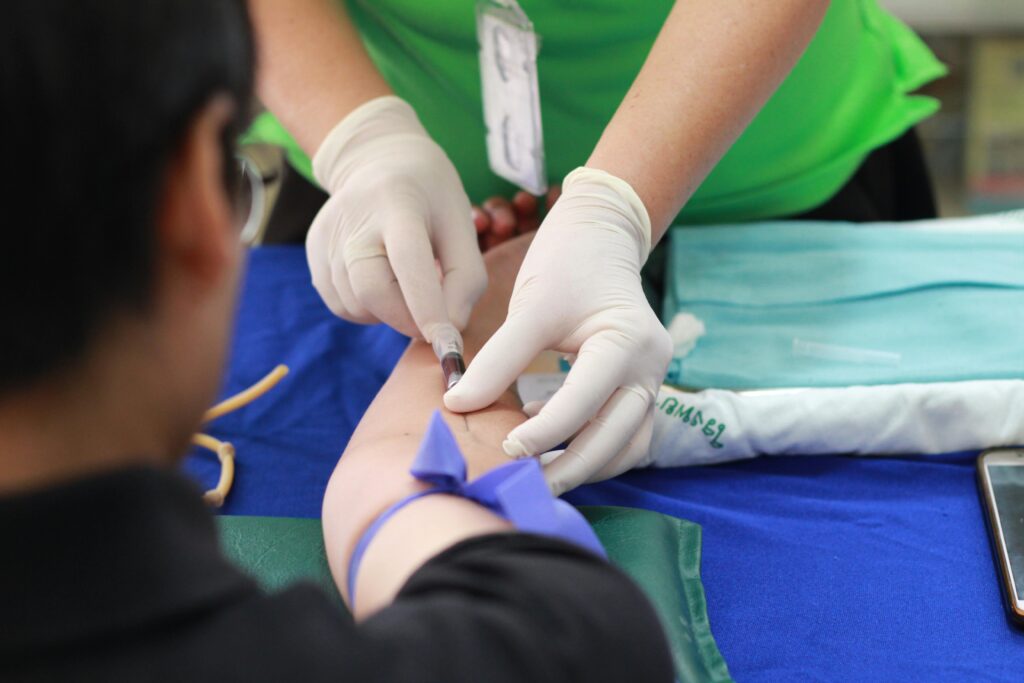Interestingly for the nursing profession, not only technical skills but employability skills are very important for success. These are called interpersonal or emotional skills, which form the basis through which a nurse is able to communicate. It also forms the basis on which nurses respond to patient’s expectations, relations, and caregivers.
Currently, there is a desire for nurses with strong communication skills, professional demeanor, and interpersonal skills. However, a lot of employers will prefer that a nurse they hire should have soft employability skills rather than advanced levels of clinical knowledge.
Soft competencies associated with patient relations show how well a nurse can manage anxiety on the job and in complex clinical practice.
This article steps through five soft employability skills for a nurse. These soft skills improve patient outcomes and engagement and create a better working environment.
Therefore, the key occupational competencies should be emphasized when it comes to the development of the nursing profession. These five soft employability skills for a nurse lead to professional promotion in the context of a changing practical field.
Read More
Increase Your Efficiency With Soft Skills for A Tutor
5 Best Soft Employability Skills Of A Family Lawyer

5 Soft Employability Skills For A Nurse
I. Communication Skills
Communication and Interpersonal skills are one of the essential five soft employability skills for a nurse, particularly in preparing for the profession. It is a critical element in patient care, interprofessional relations, and coordination of work among the health care team. The nurses may often be the first line of communication between the patients and the physicians hence communication has to be brief and precise.
Whether it is a situation where citizens need to be informed of the health state of their kin or if a patient needs to be informed on the way they will be treated, it becomes possible for the nurses to present each side’s perspective and avoid confusion owing to divergent expectations.
Furthermore, nurses should be able to communicate verbally as well as without speaking-utilizing their body language. In the verbal communication process, important medical information can only be communicated using very clear and appropriate language. Hence, gestures and eye contact together with facial expressions are critical determinants in lessons in relation to a patient’s comfort and confidence in the doctor.
Thus, teamwork also requires the application of communication skills, not only with the patients. Nurses usually work with doctors, specialists, and other carers in order to offer excellent services.
II. Empathy and Compassion
Empathy and compassion are two soft employability skills that a nurse can use to influence the patient. While power along with knowledge diagnoses a physical illness, it is compassion that cures the psychological and emotional disease of the patient.
Well, caring for the nurses makes the patients feel that they are in a sort of environment that is caring and therefore gets their cooperation.
Generally, in highly stressed healthcare environments, being able to provide emotional support can go a long way in helping a patient to heal. This is the distinction between empathy which enables you to feel as the other or for the other and compassion which is going the extra mile to ease the suffering of the other.
The ‘self’ being pro-actively practiced in a specific manner by the profession of the nurse for creating and demonstrating empathetic value is equal to the Patient needing attention and worry, fear, and comfort all of which are in focus.
This level of emotional engagement is also realized in satisfying the patient and the nurse-patient relationship because of the great communication.
Another crucial aspect that is enhanced through empathy is communication; nurses are able to handle words of sorrow, or the ability to discuss with the patient about the treatment that may not yield positive results. It is here that compassion is needed most and if the nurses will remain compassionate they can help to ease the moment.
The ability to empathize is a learned skill that is enhanced by the kinds of experiences the person goes through, reflection on these experiences, and relevant training.
Patients come in different manners and nurses are privileged to be in a position to touch and feel people of other cultures and their perceived needs.

III. Teamwork and Collaboration
Whether in the hospital, clinic, or any other nursing-related company, teamwork skills are one of the five soft employability skills for a nurse due to the extent of interdependence in most health-related facilities. Nurses work in collaboration with doctors, specialists, pharmacists, and other healthcare caregivers.
Effective communication makes patient care cooperative, smooth, fast, and of high quality. Interpersonal competent nurses are imperative in dealing with the variety and sometimes rigorous and pressured environment that is provided in a health care setting.
A major function of a nurse is to facilitate communication between different departments and other caregivers. They need to be able to guarantee that information is promptly and accurately passed on, care plans are implemented and the patients receive the correct treatments.
Some of the roles played by effective nurses include; maintaining the speedy flow of work and ensuring that communication barriers are not created to cause work hitches. Working for different teams as a result enhances the aspects of problem-solving since every individual in the team is endowed with specific training.
Another possible challenge mentioned by the nurses was that they needed to progress towards different people and teams. Nurses come across many different individuals with whom they communicate in. health care settings, big or small groups, and everyone has his/her own communication methods & work ethics.
Demonstrating the qualities of explored difference and communication provides a balance between patient relations while tenaciously maintaining professional composure and prioritizing performance. Nursing collaboration at times could be compromising since it often entails reaching the best patient results with little compromises.
IV. Problem-Solving and Critical Thinking
Both problem-solving/decision-making and critical thinking are foundational soft employability skills for a nurse since nurses work under conditions with high levels of uncertainty. From the medical emergency point of view or the patient care service delivery, the nurses encounter different challenges in a healthcare facility.
This makes the case in recognizing issues, assessing the situation, and instigating a response measure formula to responsive, highly sensitive, and valuable patient safety and health care assertiveness.
Critical thinking occurs in the evaluation stage to analyze situations, interpret patients’ data, and decide appropriately. Nurses make judgments that are in the best interest of the patient whether it is assessing changes in the patient’s status or deciding what action to take in an emergency. Critical thinking facilitates the decision-making process in that a nurse can look at several courses of action determine the likely results of each course of action and decide on the best course of action to take.

V. Time Management and Organization
Of the hard employability skills, time management and organization are major soft employability skills that are very vital to the achievement of a nurse, especially in today’s fast-paced and highly competitive healthcare facilities. Some of the tasks that nurses perform at the workplace include giving medical treatment to patients, tending to the patients, keeping records and references, and working with other specialists.
Out of the family competencies, it becomes quite challenging not to neglect other areas since there are no good time management and organizational skills. Time management helps the nurses plan their working day in a way that any emergent duties will be handled without Components neglecting other key duties.
For example, when providing patient care to a critical patient his or her care may be more important than fixing some bed rails but nurses have also to schedule time to write reports, attend meetings, or perform other non-CNES functions. Self-schedule refers to the fact that it helps the nurses to have less stress, prevent burnout, and hence improve their quality of delivering on their duties.
Similar to time management skills, organizational skills help organize every item from scrubs, and gowns to files to ensure they are accessed easily. When the environment is arranged, the nurses reach the important materials with not much difficulty allowing perfection of quick work. Well-organization is a concept that can help to maintain effectiveness and efficiency in care delivery and planning helps the nurses to spend most of their time caring for the patients.
Conclusion
Essential soft employability skills in a nurse are crucial and relevant for today’s dynamism in health organizations. Interpersonal, collaborative, conflict-solvers, analytical, administrative, and time management skills are the other prerequisites in performing the duties of the job that affect the health of patients in the facility positively.
Nurses who advance and polish these competencies can enjoy favorable communication with patients, effective collaboration with other workers, and better relations to the difficult problems individuals face in this occupation.
Through the focus on such soft skills, those nurses not only enhance their employment opportunities but also subsequently enhance the standard of service delivery in healthcare institutions. The above skills promote good working relations that in turn extend to the outcomes of the patients, and the satisfaction of workers.
The following key attributes are deemed to be foundational to high-quality nursing practice for aspiring nurses to develop after they have embraced them during their education and practice. Given this changing environment of healthcare practice, nurses who would develop and enhance these skills will be useful and be able to provide meaningful contributions to their patient’s care outcomes.






